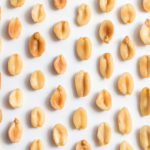The term “blue balls” is slang for epididymal hypertension, which is thought to occur when you get sexually aroused for an extended period of time but don’t have an orgasm or ejaculation. It’s not dangerous and it’s not a reason to pressure a partner into sexual activity. Anecdotal evidence suggests it’s fairly common but there’s almost no research available or much of a medical consensus on the condition.
Here’s what we know about blue balls and how to take treatment into your own hands.
What is blue balls?
Blue balls or epididymal hypertension refer to scrotal pain or a feeling of heaviness after sustained sexual arousal without orgasm and ejaculation.
What causes blue balls?
“When things are getting hot and heavy, the body channels blood into the penis and testicles,” Dr Rhys Young says. “The veins that would normally carry that blood away from the area restrict so that the blood stays there to create an erection.”
After ejaculation or when they’re no longer aroused, blood flows out of their penis and it returns to a flaccid state.
“However, if you are aroused for an extended period and don’t get that release or drop in arousal, extra blood can stay around,” Dr Young says. “This can cause some pain and discomfort.”
How do you get rid of blue balls?
“The best way to get rid of the discomfort is to either ejaculate or distract yourself by engaging in non-arousing activities,” Dr Young says. “You don’t need a partner to relieve blue balls, masturbation alone will be totally fine.”
Do I need to see a doctor about blue balls?
You usually don’t need to see a doctor about epididymal hypertension. But if it’s causing you a lot of pain or affecting your sexual performance, you should talk to your primary care doctor, urologist, or a sexual therapist. If you have strong, ongoing testicular pain that isn’t related to sexual activity, it’s important to see your doctor. They can check for other conditions that might be causing your pain.

Other causes of scrotal pain, discomfort or swelling
1. Testicular torsion
If you experience sudden, severe pain in your testicles seek immediate medical help. This could be a sign of testicular torsion. Testicular torsion happens when a testicle twists in the scrotum, cutting off the blood supply and causing swelling. Unless the condition is treated quickly, the testicle can die.
2. Epididymitis
Epididymitis is when the epididymis, a small tube behind each testicle, gets swollen or inflamed. This condition can cause pain in the scrotum, which is the pouch of skin that holds the testicles. Epididymitis can happen because of an infection, irritation, or injury. In younger guys, it’s often linked to sexually transmitted infections (STIs).
3. Orchitis
Orchitis is when one or both testicles become swollen, painful, and red. It often happens along with swelling of the epididymis, which is called epididymo-orchitis. This is a common reason for pain and swelling in the scrotum. The mumps virus is a usual cause of orchitis, but other viruses and bacteria can cause it too. If you get mumps after the age of eight, it can harm your ability to produce sperm.
4. Hydrocele
A hydrocele is when fluid builds up around one or both of your testicles, causing the scrotum to swell. Hydroceles are usually painless, but they can grow larger over time. Although they aren’t dangerous, they can become uncomfortable or get in the way if they get big enough. Hydroceles often happen because of how your body developed before birth, especially in babies and young boys. In older men, hydroceles can be caused by injury, infection, or inflammation. Very rarely, they can be a sign of testicular cancer in young men.
5. Testicular cancer
The most common symptom of testicular cancer is a lump that can be felt on, or enlargement or hardening of, one testicle (testicular cancer usually doesn’t occur on both sides). The lump may or may not be painful. If you notice changes to your testicles see your doctor as soon as possible.
3. Inguinal hernia
A hernia is when part of an organ or tissue passes from its normal location into another part of the body. An inguinal hernia is when some of the contents of your abdomen (usually a section of your intestine, or fat) passes through a weak spot in your groin, into your scrotum. If you have a bulge in your groin you might be dealing with an inguinal hernia. They can be painless, cause a dull ache or pressure around your scrotum, or cause pain when you cough, bend or lift something heavy.















